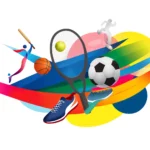The New York Times’ Wordle puzzle has become a beloved daily ritual for word enthusiasts worldwide. Puzzle No. 1,306, released at midnight in each time zone, delivered yet another engaging challenge for players. Today’s solution, KNACK, tested players’ vocabulary and problem-solving skills, offering a moderately challenging experience with an average of 4.4 guesses required for completion. Let’s delve into the details of today’s puzzle, its difficulty, and tips for tackling future Wordles.
Today’s Word: KNACK
The word KNACK, a noun, is defined as “a clever expedient or way of doing something.” It often refers to a natural skill or talent for performing a specific task. For example, someone might have a knack for solving puzzles, cooking, or fixing things. This versatile word combines simplicity with depth, making it an excellent choice for today’s Wordle.
Puzzle Difficulty
Average Difficulty Rating
Today’s Wordle was rated 4.4 guesses out of 6, categorizing it as moderately challenging. The difficulty rating is determined by averaging the guesses of a test panel who solve the puzzle in advance. This rating suggests that while the puzzle required careful thought, it wasn’t excessively difficult.
What Made It Challenging?
Several factors contributed to the moderate difficulty:
- Uncommon Letter Combination: The use of “KN” as the starting letters is less frequent in English words, which may not be the first guess for many players.
- Limited Vowel Presence: With only one vowel, “A,” in the word, players had fewer clues to work with compared to words with multiple vowels.
- Broad Guessing Range: Words like “TRACK,” “STACK,” or “CRACK” might have led players down alternate paths before identifying the correct word.
The Solving Process
Common Starting Guesses
Most seasoned players begin with words rich in vowels and common consonants to maximize information. Popular choices like “ARISE,” “STARE,” or “PLANE” provide a broad foundation by revealing multiple letters.
Eliminating Options
After identifying “A” and possibly “K” in early guesses, players likely narrowed their choices to words ending in “ACK.” This step required logical deduction and careful elimination of incorrect letters.
The Final Stretch
The final breakthrough came when players recognized the unique “KN” starting combination. Words like “KNACK” are less frequent, but once identified, they fit perfectly into the puzzle’s structure.
Strategies for Tackling Moderate Wordles
- Start with Balanced Words: Choose words with a mix of vowels and consonants to reveal maximum information. For example, “CRANE” or “SLATE” are great starting points.
- Leverage Common Patterns: If you identify part of the word (e.g., “_NACK”), think about common prefixes or suffixes that fit the pattern.
- Use WordleBot Insights: Tools like WordleBot analyze your guesses and suggest strategies for improvement. Reviewing your approach after solving can enhance future performance.
- Stay Flexible: Don’t get stuck on a single path. If your guesses don’t yield results, try a completely different set of letters to uncover hidden possibilities.
- Practice Makes Perfect: Regular play improves pattern recognition and vocabulary, making you faster and more accurate over time.
Wordle’s Global Appeal
Wordle’s success lies in its simplicity and accessibility. Players across the globe enjoy its bite-sized format, challenging their vocabulary skills in just a few minutes each day. The addition of tools like WordleBot and community forums has further enhanced the experience, offering analysis, tips, and a space for discussion.
Community Engagement
The Wordle community thrives on interaction. Players share their scores, discuss strategies, and celebrate streaks. The comments section on review pages often becomes a hub for lively discussions and friendly competition.
Educational Value
Beyond entertainment, Wordle offers educational benefits. It sharpens language skills, promotes logical thinking, and introduces players to less common words like “KNACK.”
Reflections on KNACK in Daily Language
The word KNACK carries a timeless quality. While not commonly used in everyday conversation, it holds a charming and precise meaning. Its inclusion in Wordle encourages players to expand their vocabulary, fostering a deeper appreciation for language.
For example:
- Someone with a knack for cooking can create delicious meals effortlessly.
- A mechanic might have a knack for diagnosing car issues.
- A teacher with a knack for storytelling can make lessons more engaging.
Such applications highlight the versatility and relevance of today’s Wordle solution.
The Role of Hints and Assistance
Hints for KNACK
Players seeking hints for today’s puzzle were advised to:
- Identify consonants like “K” or “N” early on.
- Focus on words with fewer vowels.
- Explore common “ACK” ending patterns.
These nudges helped players narrow their guesses while preserving the fun of solving independently.
Tools and Resources
Wordle enthusiasts can utilize several resources to enhance their gameplay:
- WordleBot: Provides post-game analysis, highlighting areas for improvement.
- Online Dictionaries: Expand your vocabulary to prepare for tricky words.
- Forums and Communities: Share tips and learn from other players.
What’s Next for Wordle?
As Wordle continues to captivate audiences, its developers consistently introduce features to keep the experience fresh. Future updates may include:
- Themed Wordles: Puzzles centered around specific topics like sports, nature, or history.
- Daily Challenges: Players could compete globally for the fastest completion time.
- Enhanced Analysis: Expanded tools to provide deeper insights into solving techniques.
Wordle No. 1,306, with its solution KNACK, offered a delightful mix of challenge and satisfaction. The puzzle tested players’ ability to think critically, recognize patterns, and expand their vocabulary. As players worldwide shared their experiences and scores, this daily ritual once again showcased its power to unite and engage.
Whether you solved it in two guesses or struggled through five, Wordle’s charm lies in the journey. Each puzzle is an opportunity to learn, grow, and enjoy the beauty of language—one word at a time.










